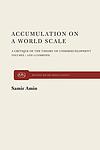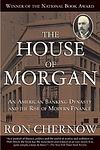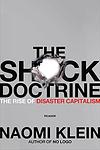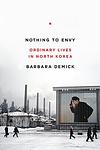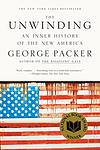The Greatest "Economics" Books of All Time
Click to learn how this list is calculated.
This list represents a comprehensive and trusted collection of the greatest books. Developed through a specialized algorithm, it brings together 305 'best of' book lists to form a definitive guide to the world's most acclaimed books. For those interested in how these books are chosen, additional details can be found on the rankings page.
Genres
Economics is a category of books that explores the production, distribution, and consumption of goods and services. It delves into the principles of supply and demand, market structures, and the role of government in regulating economic activity. Books in this category may cover topics such as macroeconomics, microeconomics, international trade, finance, and economic history. They provide insights into how economic systems work and how they impact individuals, businesses, and society as a whole.
Countries
Date Range
Reading Statistics
Click the button below to see how many of these books you've read!
Download
If you're interested in downloading this list as a CSV file for use in a spreadsheet application, you can easily do so by clicking the button below. Please note that to ensure a manageable file size and faster download, the CSV will include details for only the first 500 books.
Download-
51. Accumulation On A World Scale by Samir Amin
"Accumulation On A World Scale" by Samir Amin is a thought-provoking analysis of the global capitalist system and the dynamics of accumulation. Amin explores the historical development of capitalism, its inherent contradictions, and the ways in which it perpetuates inequality and exploitation on a global scale. He argues that the capitalist system is fundamentally flawed and unsustainable, offering alternative perspectives on economic development and proposing radical changes to create a more equitable and just world.
The 3791st Greatest Book of All Time -
52. The Tyranny Of Distance by Geoffrey Blainey
"The Tyranny of Distance" explores the impact of geographical isolation on Australia's history, economy, and society. Blainey delves into how the vastness of the continent has shaped the country's development, from the challenges faced by early settlers to the struggles of maintaining connections with the rest of the world. Through a comprehensive analysis, the book highlights the unique circumstances and opportunities that arise from Australia's geographical position, ultimately offering a thought-provoking perspective on the nation's past and future.
The 3791st Greatest Book of All Time -
53. Behind the Beautiful Forevers: Life, Death, and Hope in a Mumbai Undercity by Katherine Boo
This book is a gripping narrative that provides an in-depth look into the lives of residents in a Mumbai slum, focusing on their struggles and aspirations. The author paints a vivid picture of the harsh realities of poverty, corruption, and inequality, while also highlighting the resilience and hope of the inhabitants. The narrative is a powerful exploration of the complexities of modern India, revealing the stark contrast between the country's booming economy and the grim living conditions of its underprivileged citizens.
The 4092nd Greatest Book of All Time -
54. Theory of Games and Economic Behavior by John Von Neumann
This book is a groundbreaking work that applies mathematical methods to the study of economic behavior. It introduces the theory of games, a mathematical framework for analyzing conflict and cooperation between intelligent rational decision-makers, and its implications for economic behavior. The book covers topics such as zero-sum games, utility theory, and the minimax theorem, and it has had a profound impact on economics, political science, and other social sciences.
The 4151st Greatest Book of All Time -
55. An Essay on the Principle of Population by Thomas Robert Malthus
This influential work explores the theory that population growth will always tend to outrun the food supply and that betterment of humankind is impossible without strict limits on reproduction. The author argues that poverty, disease, and starvation are all necessary to keep societies from moving beyond their means of subsistence. The book's grim outlook and controversial theories have sparked significant debate and criticism since its publication.
The 4151st Greatest Book of All Time -
56. The House of Morgan by Ron Chernow
"The House of Morgan" is a comprehensive history of the Morgan banking dynasty, tracing its origins from the 19th century to its present-day status. The book explores the family's influence on American and international finance, politics, and society, highlighting key figures and events. It provides an in-depth look at the workings of high finance and the power dynamics within the Morgan family, offering insights into the world of banking and the people who shaped it.
The 4401st Greatest Book of All Time -
57. Grundrisse: Foundations of the Critique of Political Economy by Karl Marx
This book is a thorough critique of capitalism as an economic system, providing a comprehensive analysis of its structure and consequences. The author delves into the nature of commodities, labor, money, and capital, and explores the complex relationships between these elements. The book also offers a critical examination of the capitalist mode of production, the division of labor, and the exploitation of the working class, arguing that these aspects of capitalism lead to social inequality and economic instability. The author advocates for a socialist system as a more equitable and sustainable alternative to capitalism.
The 4688th Greatest Book of All Time -
58. The Shock Doctrine: The Rise of Disaster Capitalism by Naomi Klein
This book explores the concept of "disaster capitalism", the idea that global capitalism thrives on disaster and chaos. The author argues that free market policies are often pushed through while countries are reeling from wars, natural disasters, or economic crises. She provides a historical analysis of these events, from Chile in the 1970s, to Russia in the 1990s, to the war in Iraq, demonstrating how governments and corporations exploit these periods of shock to implement economic reforms that would otherwise be rejected.
The 5000th Greatest Book of All Time -
59. The Poverty of Power by Barry Commoner
The book in question critically examines the interlinked crises of energy, economy, and ecology facing the United States in the 1970s, arguing that the capitalist system, with its reliance on fossil fuels and unsustainable growth, is fundamentally at odds with environmental protection and social equity. The author contends that the pursuit of profit has led to the concentration of wealth, energy shortages, pollution, and the degradation of natural resources, ultimately resulting in a form of poverty characterized by a lack of power for the majority to effect change. The work calls for a radical restructuring of societal values and energy policies to prioritize renewable resources, conservation, and a more equitable distribution of wealth and power.
The 5080th Greatest Book of All Time -
60. Entropy by Jeremy Rifkin, Ted Howard
"Entropy" is a thought-provoking exploration of the second law of thermodynamics, also known as entropy, and its implications for society, economy, and the environment. The authors argue that our current economic systems and society are unsustainable due to the continuous consumption of energy, leading to increased disorder and waste. They propose a radical shift towards a more sustainable and equitable society, emphasizing the need for renewable energy sources, recycling, and energy conservation. The book serves as a compelling call to action for a more sustainable future.
The 5378th Greatest Book of All Time -
61. London Labour and the London Poor by Henry Mayhew
This book provides a comprehensive look into the lives of the working poor in 19th century London. The author offers an in-depth analysis of the socio-economic conditions of the time, detailing the struggles and hardships faced by the city's lower classes. The book includes interviews with a wide range of people, from street-sellers and chimney sweeps to beggars and thieves, offering a vivid and often grim picture of Victorian London. It is considered an important social document for its first-hand account of the realities of urban poverty.
The 5738th Greatest Book of All Time -
62. The Economic Consequences of the Peace by John Maynard Keynes
This book is a critique of the Treaty of Versailles, written by a British economist who was part of the British delegation to the peace conference. The author argues that the harsh reparations and economic measures imposed on Germany after World War I were unfair and would lead to economic instability and another war. He suggests that a more just and economically sound approach would have been to rebuild Germany and integrate it into the global economy, rather than punishing it.
The 5738th Greatest Book of All Time -
63. The Haunted Land by Tina Rosenberg
"The Haunted Land" is a compelling exploration of the aftermath of communism in Eastern Europe, specifically in the Czech Republic, Poland, and Germany. The book delves into the struggles of these nations as they grapple with their pasts under oppressive regimes, and their attempts to move forward towards democracy. The narrative also examines the moral dilemmas faced by these societies as they confront issues of justice, retribution, and memory.
The 6388th Greatest Book of All Time -
64. Nothing to Envy by Barbara Demick
"Nothing to Envy" is a non-fiction narrative that provides an in-depth look at life in North Korea through the eyes of six defectors. The book covers a span of 15 years, during which the country faced a devastating famine. It explores the lives of ordinary citizens, their indoctrination, their gradual realization of the truth about their government, and their decision to defect. The book paints a vivid picture of the harsh realities of life under a totalitarian regime and the struggle for survival and escape.
The 6450th Greatest Book of All Time -
65. Capital in the Twenty-First Century by Thomas Piketty
This book provides a comprehensive analysis of the dynamics of capital accumulation and distribution over the last few centuries. The author argues that the rate of capital return in developed countries is persistently greater than the rate of economic growth, leading to high levels of wealth inequality. The book further suggests that the level of income inequality is not primarily a result of differences in individual labor income but rather the result of differences in capital ownership and the income derived from it. The author proposes a global tax on wealth to prevent soaring inequality.
The 6638th Greatest Book of All Time -
66. The Theory of Economic Development: An Inquiry into Profits, Capital, Credit, Interest, and the Business Cycle by Joseph A. Schumpeter
This book presents a detailed analysis of the mechanisms of economic development, focusing on aspects such as profits, capital, credit, interest, and the business cycle. The author argues that economic development is driven by innovative entrepreneurs who disrupt the status quo, creating new goods and methods of production. He highlights the role of credit in facilitating these innovations, and examines the cyclical nature of economic development. The book also explores the societal and political implications of this process of 'creative destruction'.
The 7168th Greatest Book of All Time -
67. The Frugal Superpower: America's Global Leadership in a Cash-Strapped Era by Michael Mandelbaum
This book explores the impact of America's economic constraints on its global leadership role. The author argues that the growing national debt and the need to focus on domestic issues will force the United States to reevaluate and limit its international commitments. The book also examines potential scenarios for the world order if America withdraws from its global leadership role, ranging from a more multipolar system to the rise of more aggressive powers. The author emphasizes the need for careful management of this transition to avoid instability and conflict.
The 7859th Greatest Book of All Time -
68. Lords of Finance: The Bankers Who Broke the World by Liaquat Ahamed
The book offers an in-depth analysis of the events leading up to the Great Depression from the perspective of four central bankers from the United States, Britain, France, and Germany. The author argues that these individuals, through their decision-making and policies, inadvertently contributed to the economic turmoil of the 1930s. The book provides a historical examination of the global financial system, monetary policy, and the role of central banks, ultimately highlighting the human factor in economic catastrophes.
The 7903rd Greatest Book of All Time -
69. The Acquisitive Society by R. H. Tawney
"The Acquisitive Society" is a critique of capitalism and a call for a more equitable society. The author argues that the capitalist system rewards acquisitiveness rather than hard work or creative contribution, leading to a society that is both inequitable and inefficient. He proposes a society in which property is more evenly distributed and wealth is generated through service to the community, not through the accumulation of possessions. The book is a call for a radical restructuring of society in the name of fairness and efficiency.
The 7960th Greatest Book of All Time -
70. The Wisdom Of Crowds by James Surowiecki
This book explores the concept that large groups of people are smarter than an elite few, no matter how brilliant, and are better at solving problems, fostering innovation, coming to wise decisions, even predicting the future. The author delves into a wide range of disciplines, including popular culture, psychology, and behavioral economics to demonstrate how this concept works in the real world. The book also examines how group decisions can go wrong and provides insights on how to prevent these errors.
The 8376th Greatest Book of All Time -
71. After The Music Stopped: The Financial Crisis, The Response, And The Work Ahead by Alan S. Blinder
After the Music Stopped is a comprehensive analysis of the 2008 financial crisis and its aftermath. Alan S. Blinder, a former vice chairman of the Federal Reserve, examines the causes of the crisis, the government's response to it, and the ongoing challenges facing the global economy. Blinder argues that the crisis was caused by a combination of factors, including lax regulation, excessive risk-taking, and a housing bubble. He also explores the various policy responses to the crisis, including the Troubled Asset Relief Program (TARP) and the Dodd-Frank Wall Street Reform and Consumer Protection Act. Finally, Blinder offers recommendations for preventing future financial crises and ensuring long-term economic stability.
The 8453rd Greatest Book of All Time -
72. Empire Of Cotton: A Global History by Sven Beckert
"Empire of Cotton" by Sven Beckert is a comprehensive global history of cotton, exploring its impact on the world economy, politics, and society from the 18th century to the present day. Beckert argues that cotton played a crucial role in the development of capitalism, colonialism, and imperialism, and that its production and trade were intimately linked to the exploitation of labor, the growth of slavery, and the rise of industrialization. The book offers a fascinating and thought-provoking perspective on the complex and often violent history of cotton and its enduring legacy in the modern world.
The 8571st Greatest Book of All Time -
73. The Spirit Level by Richard Wilkinson
This book presents a compelling argument that income inequality within a society leads to a wide range of social and health problems. The authors use a variety of statistical data from different countries to show that societies with more equal distribution of incomes have better health, fewer social problems such as violence, drug abuse, and mental illness, and are more cohesive than ones in which the gap between the rich and poor is greater. The book challenges the notion that societal problems are inevitable in modern, developed societies and offers a new way of understanding how we can improve the quality of life for all.
The 9011th Greatest Book of All Time -
74. The Unwinding: An Inner History of the New America by George Packer
The book offers an in-depth look at the social, political, and economic transformations that have occurred in America over the past three decades. It presents a series of personal narratives from various individuals, including a factory worker, a Silicon Valley billionaire, and a Washington insider, among others. These stories serve to illustrate the larger trends and changes that have taken place in the country, such as deindustrialization, the rise of technology, and the influence of money in politics, and how these shifts have affected the American dream.
The 9189th Greatest Book of All Time -
75. A Civil Action by Jonathan Harr
This book is a non-fiction account of a water contamination case in Woburn, Massachusetts. A determined lawyer fights on behalf of eight families whose children have died from leukemia caused by industrial pollution. The narrative explores the complex legal battle against two large corporations, revealing the intricacies of the American legal system, the sacrifices required for justice, and the impact of corporate power on individual lives.
The 9333rd Greatest Book of All Time
Reading Statistics
Click the button below to see how many of these books you've read!
Download
If you're interested in downloading this list as a CSV file for use in a spreadsheet application, you can easily do so by clicking the button below. Please note that to ensure a manageable file size and faster download, the CSV will include details for only the first 500 books.
Download